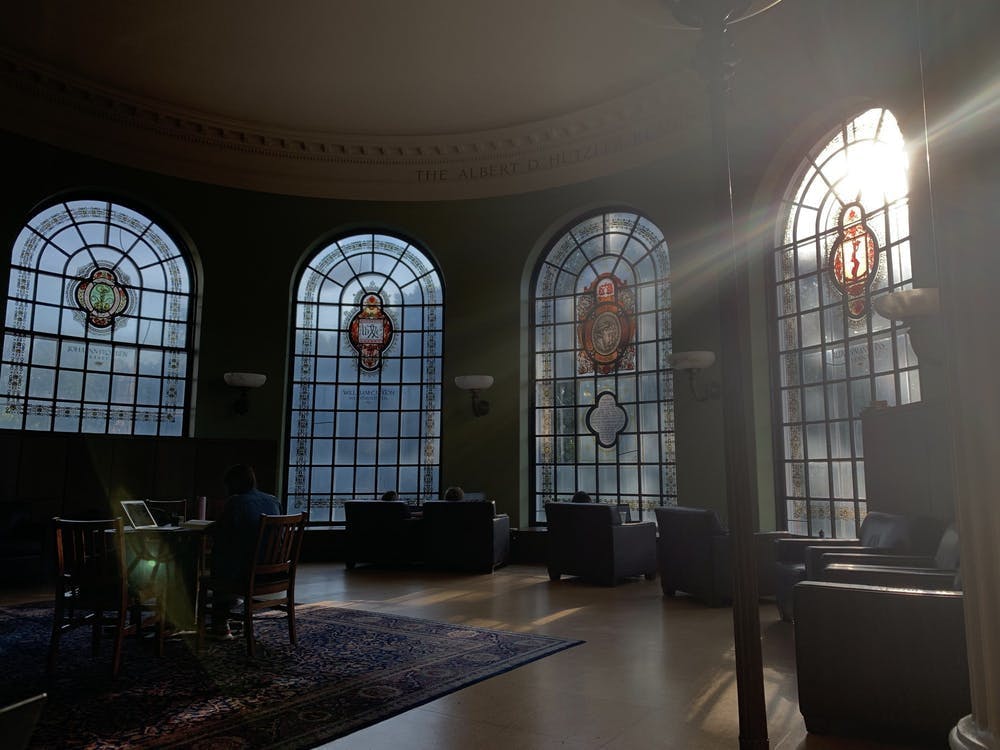The Office of Multicultural Affairs and Women and Gender Resources hosted an event featuring Somali American poet, teacher and lyricist Ladan Osman on Feb. 10 to discuss the lives of the Black community as part of its Heritage 365 Initiative.
Osman is the author of Exiles of Eden (2019) and The Kitchen-Dweller’s Testimony (2015) and winner of the Hurston/Wright Legacy Award and the Sillerman Prize. She has received fellowships from the Lannan Foundation, the Cave Canem Foundation, the Michener Center for Writers and the Fine Arts Work Center and is a 2021 Whiting Award winner.
As a celebration of Black History Month, Osman shared her poetry, which tackles themes of race, gender, displacement and colonialism. At the event, she highlighted her passion for poetry and its power to bring together communities during times of strain and stress.
Osman recited a poem memorializing Emmett Till as well as Black Americans killed at the hands of the police and expressed her longing to celebrate the ordinary lives of Black communities.
“Sometimes, life is rendered as a movement, which is necessary, but it is difficult because we want to see each other not only survive but thrive,” Osman said. “We want to see each other live full lives and maybe even be as ordinary to allow life to keep going ahead without a trending hashtag.”
Osman reflected on how learning about Black history had been haunting from a young age. She feels vulnerable with her work, and sharing her poetry has been a confirmation that she has a community that feels the same way as her.
“We are inside of this together, resisting together. We are not going to let go of our dead, either,” Osman said. “It’s so heavy, and it never stops being like that, but I remind myself that maybe the next generation will be free — and maybe if we resist, there will be a few more of us that live longer.”
In an email to The News-Letter, freshman Akosa Obianwu, an attendee of the event, explained his connection to Osman’s poetry.
“[The poem] was so relatable because Black people have felt that for the past 400 years, watching their loved ones as well as strangers being snatched from them,” Obianwu wrote. “Her poem reminded me of how scared I felt when I was nine and heard the recording of Trayvon Martin's last moments, all to watch his murder trial end without the justice he deserved.”
Another attendee, freshman Cynthia Sanchez Hidalgo, wrote in an email to The News-Letter that the most moving aspect of the event was seeing how the poet connected with her poetry.
“At times she would often start by apologizing for having trouble saying the poems out loud. That resonated with me and made the experience very much worth it as I could see the emotional connection between her and her work,” she wrote.
Obianwu expressed his gratitude at the opportunity to listen to a Black creator, especially because many of the stories shared are ignored in mainstream media. He emphasized that such stories capture lives and legacy in their words.
Sanchez Hidalgo similarly shared her desire to step out of her comfort zone and listen to the Black community.
“We often put ourselves in a box and surround ourselves with things that seem familiar,” she wrote. “I want to be a better listener and be more aware of things that Black creators may be bringing awareness to and the struggles of the Black community that I might not necessarily hear about elsewhere.”





